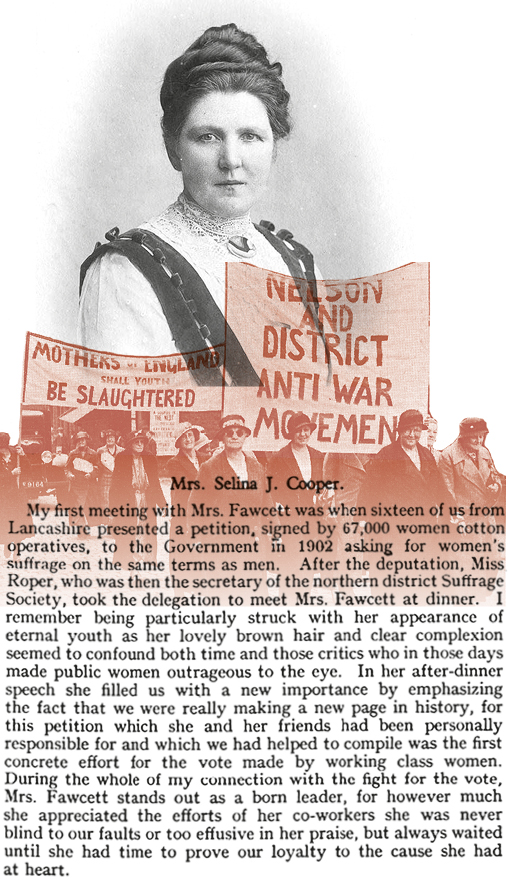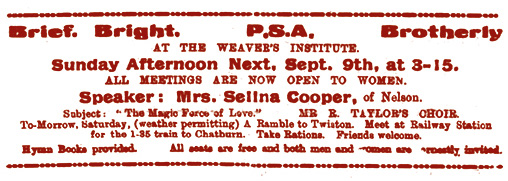“One reason why I am a convinced suffragist is that the mothers take the greater share of the responsibility in the upbringing of their children; therefore, they ought to have the greater means, not the less, to enable them to do justice to the rising generation.”
1913, Common Cause
A mill girl from the age of 12, this unstoppable young woman somehow made a huge contribution to the suffrage struggle, and later, many other progressive political causes. In 1910 she was one of four women to present the case for women’s suffrage to Prime Minister Herbert Asquith. In 1917 she recruited over a thousand women in Nelson to join the Women’s Peace Crusade. A true Lancashire hero.
Read More
Born in Cornwall in 1864. Her widowed mother decided to move north to work in the textiles mills, and settled in Barnoldswick in 1876. The 12 year old Selina found work in the local textiles mill as a ‘creeler’. Half timing until she turned 13, when she left school and worked at Barnoldswick Mill full-time, enabling the family to rent a small house close by.
In 1889 she joined the Nelson branch of the Cotton Worker’s Union. Though mostly made up of women, it was run by men. Selina began attending education classes, arranged by the Women’s Co-operative Guild in Nelson. She also started to read books about history and politics, as well as medical books, so she could advise fellow workers who were unable to afford a visit to the doctors.
Although giving birth to two children in her first three years of marriage, she continued to be involved in politics. In 1900 she joined the North of England Society for Women’s Suffrage. She helped to organize a petition against the unfair treatment of women in factories, signed by women in the Lancashire cotton mills, where Selina collected over 800 signatures. By spring 1901, 29,359 women from Lancashire had signed the petition in favour of women’s suffrage and Selina was chosen as one of the delegates to present the petition to the House of Commons.
In 1910 she was one of four women to present the case for women’s suffrage to Prime Minister Herbert Asquith. During WW1 Selina worked on committees organizing relief work in Nelson, including Nelson’s first ever Maternity Centre. As a pacifist, Selina was opposed to military conscription and after its introduction in 1916, became involved in helping men who were jailed for refusing to fight. In 1917 she recruited over a thousand women in Nelson to take part in a Women’s Peace Crusade procession.

For Pendle Radicals
We have created a linear walk from Nelson to Earby linking Selina’s story to that of another Lancashire titan in the early 20th Century struggle for greater equality, and the mother of the Independent Labour Party, Katharine Bruce Glasier. The Wonder Women walk can be downloaded on our Resources page.
We are supporting Nelson Town Council’s project to honour Selina at Unity Hall, once the HQ of the Independent Labour Party.

Explore further
Jill Liddington’s biography, The Life and Times of a Respectable Rebel, was published by Virago and copies can be found online.
